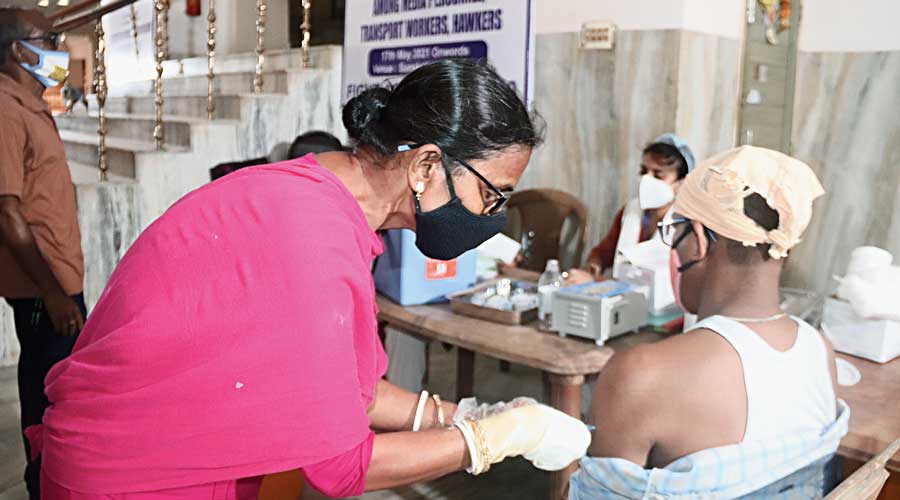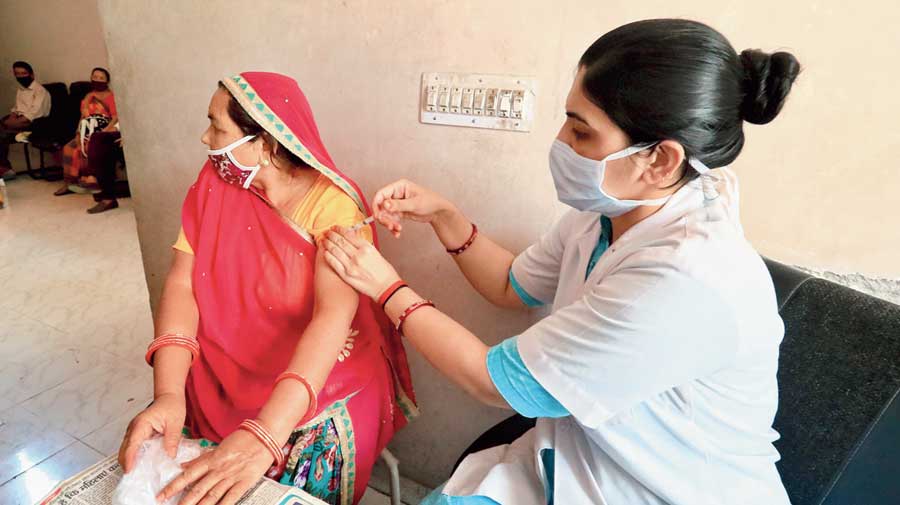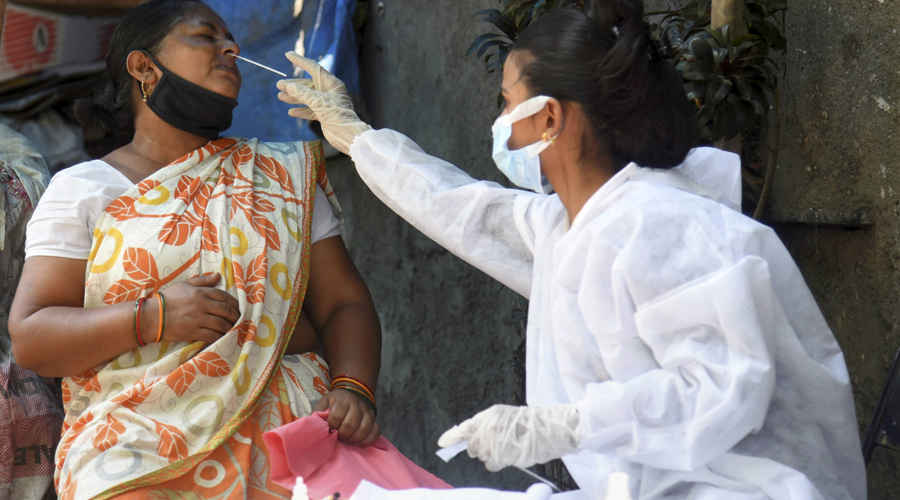People who have contracted Covid-19 should defer their vaccinations for three months, India’s health ministry said on Wednesday, accepting an expert panel’s recommendations made last week.
The ministry said people who had had a lab diagnosis of Covid-19, those who had received convalescent plasma or monoclonal antibody therapy, and those who had developed the infection between their first and second vaccine doses should defer the vaccination for three months.
The decision comes amid growing evidence that Covid-19 protects people from re-infection for several months and a lack of evidence yet that the fast-spreading coronavirus variants observed in the country have increased the re-infection rates, health officials and medical researchers said.
The recommendations from the National Technical Advisory Group on Immunisation (NTAGI), a body of medical experts, mean that several million people who have recovered from Covid-19 in recent weeks but have not taken the vaccine should wait while uninfected people get vaccinated.
More than 6.8 million people who have recovered from Covid-19 across the country over the past three weeks (between April 28 and May 19), for instance, would need to wait until July 28 to August 19 before they can get their jabs.
The decision would allow unprotected people to get vaccinated faster at a time states across the country have offered Covid-19 vaccines to all adults 18 years and above despite vaccine shortages.
A technical group within the NTAGI had last week suggested that people who had recovered from Covid-19 be asked to defer vaccination by up to six months, as reported by this newspaper on May 14.
“The evidence for protection up to six months after the infection is strong,” said Jayaprakash Muliyil, former professor of community medicine at the Christian Medical College, Vellore, and a member of the technical group.
The recommendation to defer vaccination for three months was based on evidence from outside India and observations within the country that show a “near-zero” risk of re-infection within three months after recovery, said Narendra Arora, a senior adviser to the government on vaccination and a group member.
A study in the UK that covered over 25,600 people and was published last month had found that a previous Covid-19 infection had a protective effect for up to seven months.
“The time is three months instead of six or nine months because the longer the gap, the greater will be the chance of getting a re-infection,” Samiran Panda, head of epidemiology at the Indian Council of Medical Research, told The Telegraph.
An ICMR study had earlier this year found 58 (4.5 per cent) re-infections among a sample of 1,300 people. “Data generated by the ICMR contributed to the decision on how long one could wait following natural infection to seek vaccination,” Panda said.
Many epidemiologists and doctors believe that re-infections have remained rare despite the emergence of fast-spreading variants such as B1.117, first observed in the UK, or B1.617, first detected in India.
The UK study did not find any evidence that the increasing prevalence of B1.117 had adversely affected re-infection rates.
A senior health official and a medical researcher said there was no evidence yet that B1.617, which has likely contributed to the sharp increase in cases during India’s second wave, is also causing an increase in re-infections.
“To assess an increase in re-infections, we need strong baseline data,” the official said.













